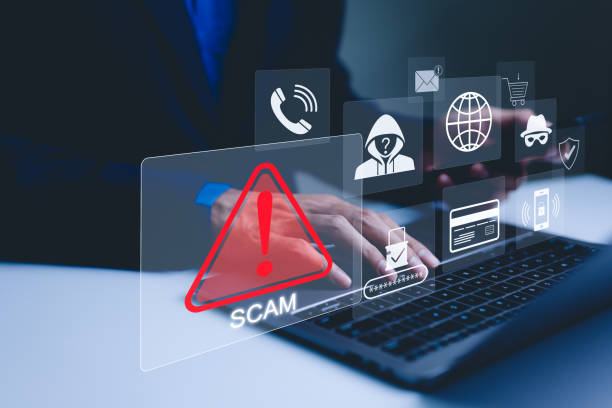Everyday Texts and Investment Tips can be Costly Traps
By Reid Carter
13 October 2025

Scammers have learned to blend into daily life. Two of the most common schemes in the U.S. right now involve fake delivery notifications and fraudulent investment opportunities. Both prey on habits most people barely think about—checking a text or trusting a "friend's" financial tip.
1. Delivery Text Scams
These messages claim to be from UPS, USPS, or FedEx, saying your package is delayed, lost, or needs confirmation. The text includes a link that looks legitimate but leads to a fake tracking site. Victims who click are prompted to enter credit card info to "reschedule delivery" or "pay a small fee." Others download hidden malware that steals passwords and banking details. Many of these scams are timed around holidays or major sales when package traffic is high. How to avoid it: Never click links in delivery texts. Check delivery status through the official carrier's app or website. Real companies won't ask for payment to release a package.
2. Fake Investment Scams
Social media is fueling a new wave of investment fraud. Scammers pose as financial advisors, crypto experts, or successful traders and show fake screenshots of huge profits. They invite victims into "exclusive groups" or direct them to polished investment sites that are entirely fake. Often they'll even send a small "return" first to build trust before disappearing with larger deposits. Victims lose thousands, sometimes entire savings.
How to avoid it: No real investment guarantees quick profits. Check advisors on FINRA or SEC databases. Never invest through links sent by strangers or influencers.
1. Delivery Text Scams
These messages claim to be from UPS, USPS, or FedEx, saying your package is delayed, lost, or needs confirmation. The text includes a link that looks legitimate but leads to a fake tracking site. Victims who click are prompted to enter credit card info to "reschedule delivery" or "pay a small fee." Others download hidden malware that steals passwords and banking details. Many of these scams are timed around holidays or major sales when package traffic is high. How to avoid it: Never click links in delivery texts. Check delivery status through the official carrier's app or website. Real companies won't ask for payment to release a package.
2. Fake Investment Scams
Social media is fueling a new wave of investment fraud. Scammers pose as financial advisors, crypto experts, or successful traders and show fake screenshots of huge profits. They invite victims into "exclusive groups" or direct them to polished investment sites that are entirely fake. Often they'll even send a small "return" first to build trust before disappearing with larger deposits. Victims lose thousands, sometimes entire savings.
How to avoid it: No real investment guarantees quick profits. Check advisors on FINRA or SEC databases. Never invest through links sent by strangers or influencers.
